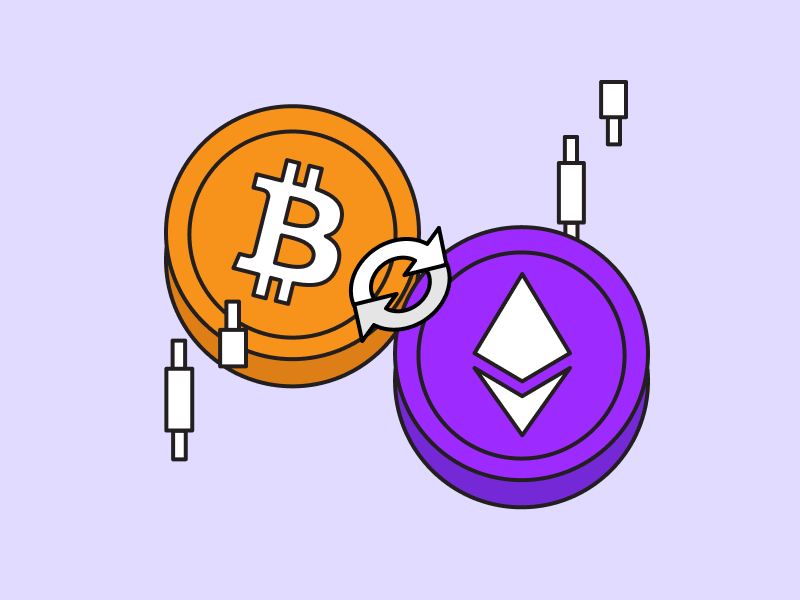The crypto industry has grown rapidly since its inception. Today, users can choose from hundreds of options to enter the crypto world. Crypto investors can select CEX platforms, which are the easiest to use, DEX platforms designed specifically for crypto users, and Web3 Swap, which combines the best of both. This article will explain the differences and compare CEX vs DEX vs Swap.
Article Summary
- CEX (Centralized Exchange): A crypto exchange operated by a centralized entity. CEX is fast and secure, but users must trust the platform.
- DEX (Decentralized Exchange): A decentralized crypto exchange without intermediaries, offering privacy and freedom. Users are responsible for transaction security, but there is a risk of scam tokens.
- Crypto Swap: A direct exchange between crypto assets without going through fiat. It simplifies transactions for new users and often connects with various DEXs to get the best price, with a level of decentralization and security depending on the platform.
3 Types of Asset Exchanges in Crypto
The crypto industry has grown rapidly since its inception more than 10 years ago. Initially, crypto asset exchanges could only be conducted through peer-to-peer (P2P) transactions between two parties. Today, users and investors have various platform options for buying and selling crypto assets.
The three most popular choices are centralized exchanges (CEX), decentralized exchanges (DEX), and crypto swaps. Each comes with its own advantages, disadvantages, and varying levels of security and decentralization.
1. Centralized Exchanges (CEX)
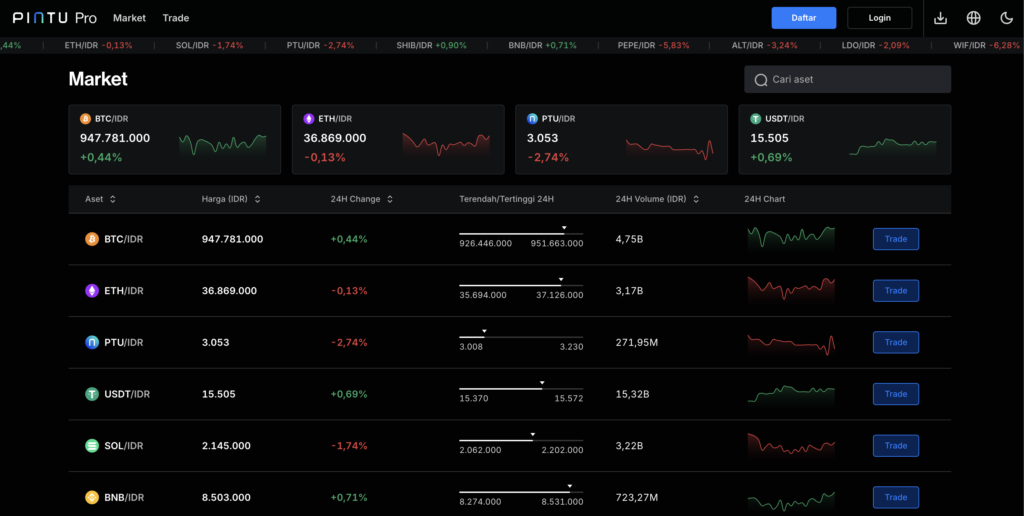
Centralized Exchange or CEX is a centralized crypto exchange that uses an order book system to facilitate buying and selling. CEX acts as an intermediary to ensure users can trade crypto assets. It also serves as a platform for crypto-to-fiat deposits and withdrawals, and vice versa.
CEX is controlled and operated by a company that must typically comply with the regulations of the country where it operates. Pintu is an example of a CEX in Indonesia. As a user, you must complete KYC (identity verification) and follow various other regulations from the Indonesian government. Using a CEX also means you are trusting that platform.
Most crypto exchanges take place via CEX. In the last 24 hours (October 4, 2024), the total transaction volume from 129 CEX was $59.17 billion.
Examples of CEX: Pintu, OKX, ByBit, and Binance.
2. Decentralized Exchanges (DEX)
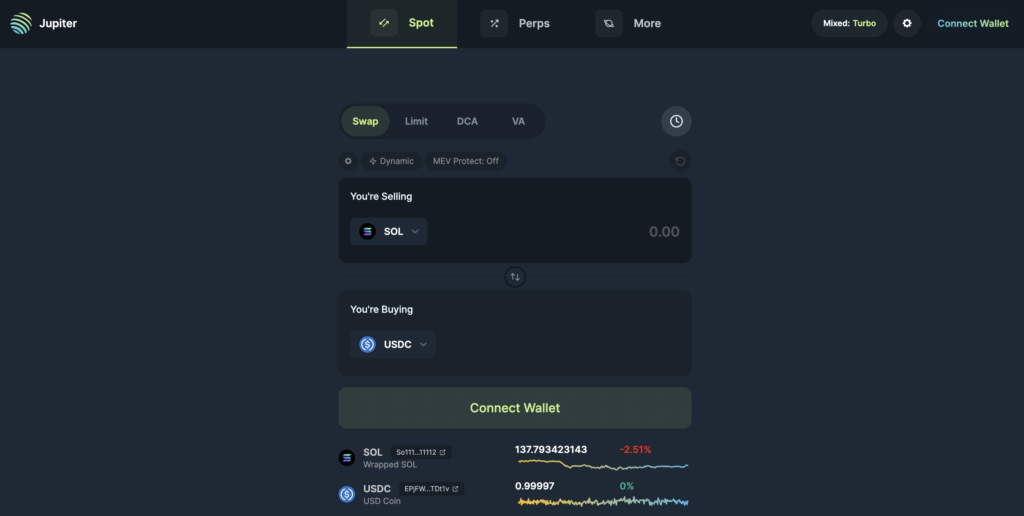
Decentralized Exchange or DEX is a decentralized crypto exchange that facilitates direct transactions between users. DEX is directly connected to the blockchain, so no intermediary is needed. When using DEX, you are free to buy assets available on that network (such as Ethereum).
DEX uses smart contracts to facilitate crypto asset trading. Each DEX may have its own variation of an Automated Market Maker (AMM) system. Therefore, all transactions on DEX are highly transparent and can be tracked through sites like Etherscan, Solscan, and others.
All transactions made through DEX are the sole responsibility of each user. Users must also understand how slippage and gas fees work, and that there are risks of buying scam tokens in the form of honeypots or rug pulls. DEX is not designed for beginners just entering the world of crypto.
Currently (October 4, 2024), the total DEX transaction volume in the last 24 hours reached $6 billion, only 10% of the total volume traded via CEX.
Examples of DEX: UniSwap, Raydium, and PancakeSwap.
3. Crypto Swap
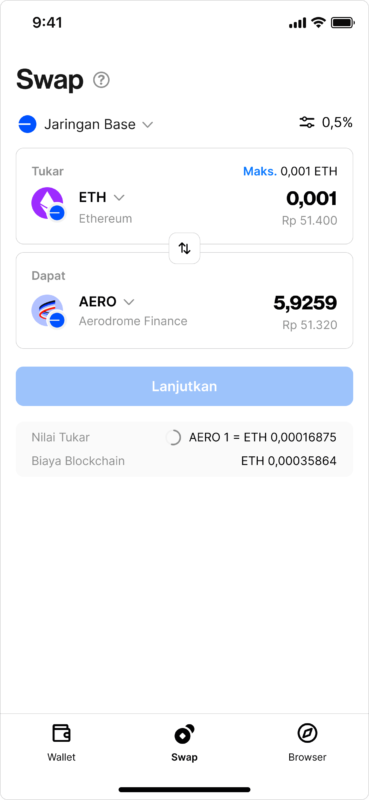
Crypto Swap refers to the direct exchange between two crypto assets without going through fiat-crypto transfers. Swaps usually occur in a decentralized manner because they utilize the AMM system from one or more DEXs.
Additionally, swap is a method of exchanging crypto assets designed for users new to the Web3 world. We can view the swap method as a more user-friendly alternative to using DEXs like UniSwap. Now, many CEXs and crypto wallets offer swap features.
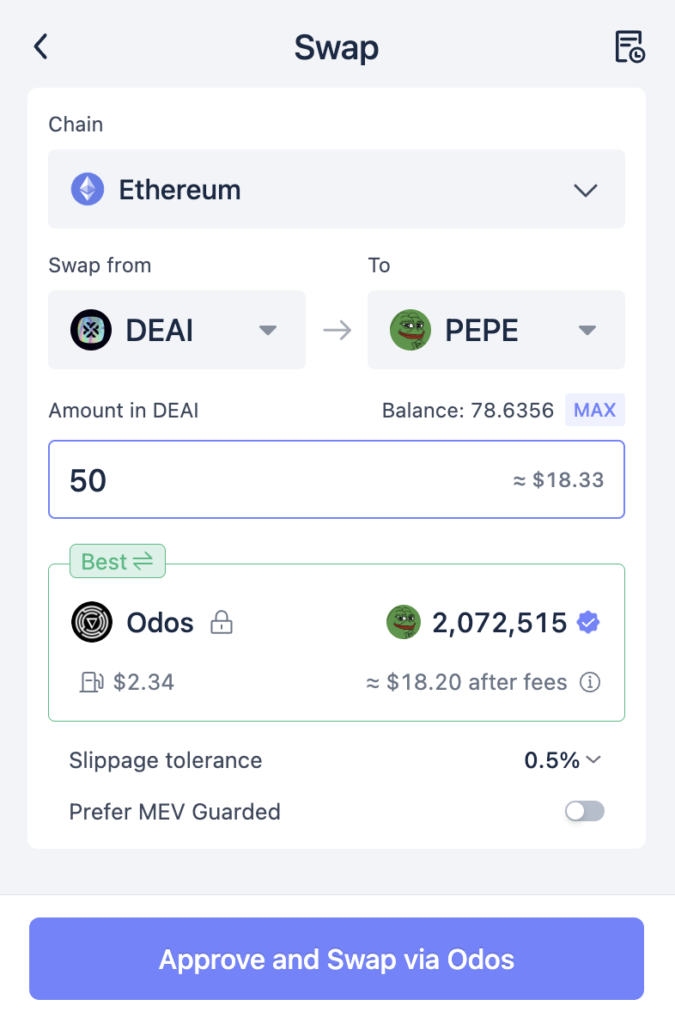
Through swap, users don’t need to compare transaction fees across various DEXs. Swap platforms typically automatically compare and select the best price for each transaction. This makes swap ideal for beginner users and traders who frequently use DEXs.
Examples of platforms offering swaps: Web3 Wallet Pintu, OKX Wallet, MetaMask, DeFiLlama, and Rabby.
Comparison of CEX vs. DEX vs. Swap
| CEX | DEX | Swap | |
|---|---|---|---|
| Level of Decentralization | None, as it is created by a centralized entity and requires identity verification. | High, as users trade in a decentralized manner without identity verification. | Moderate to high, depending on the swap provider. |
| Speed | Very fast. | Depends on blockchain speed. | Depends on blockchain speed. |
| Security | Security is guaranteed by the CEX. | The security on DEX platforms depends on the protocol. | Security depends on the protocol. |
| Transaction Fees | CEX imposes additional fees based on its policies. | No additional fees besides blockchain gas fees. | Additional fees depend on the swap provider. |
| Risk | Low, as it is guaranteed by the CEX. | Risk of buying scam tokens. | Risk of buying scam tokens. |
Level of Decentralization
Decentralization is often associated with transparency and security. In this aspect, DEX and swap transactions are better than CEX because all transactions can be tracked. Privacy is also a benefit of DEX and swap as they do not require identity verification. However, swaps provided by CEX still require identity verification.
Speed
In terms of speed, CEX is faster than decentralized platforms like DEX and swap. Buying and selling activities through DEX and swap are highly dependent on blockchain speed.
For example, the experience of buying tokens on Solana and Ethereum will be very different due to the speed gap between them. If we compare transaction speeds between CEX and blockchains like Solana, the difference is not too significant.
Security
The security of a CEX platform is guaranteed by the company that created it and is also protected by the country’s crypto asset regulations. Meanwhile, the security of DEX and swap is directly related to the blockchain and protocol. Therefore, make sure you choose DEX and swap platforms with proven security.
The security features of Pintu Web3’s swap differ from most decentralized wallets like MetaMask. Pintu Web3 wallet is equipped with MPC security methods. Additionally, Pintu Web3 wallet swap features are built in collaboration with trusted crypto projects like Jupiter.
Transaction Fees
Most CEXs impose additional transaction fees depending on platform policies and country regulations. For example, the Indonesian government imposes a 0.1% tax on every transaction. On the other hand, DEX transactions only incur blockchain gas fees. DEX transactions do not charge additional fees. Meanwhile, additional fees for crypto swaps depend on the platform.
Risk
The risks associated with CEX transactions relate to data breaches or platform security. Meanwhile, DEX and swap entirely leave security issues to each user.
One of the biggest risks of transacting via DEX and swap is buying scam tokens with rug pull or honeypot potential. Therefore, users must always check the tokens they want to buy or sell through multiple sites like Bubble Maps, Rugcheck, or Token Sniffer. Most swap also has a type of firewall to warn users of suspicious transactions and tokens. Pintu’s Web3 wallet has this feature built-in.
Conclusion
The three types of crypto exchanges (CEX, DEX, and Swap) each have their own strengths and weaknesses. CEX excels in speed and guaranteed security, while DEX and Swap offer higher decentralization and better privacy. However, both DEX and Swap require a deeper understanding of transaction risks, especially regarding scam tokens. Choosing the right platform should be based on the user’s needs, whether in terms of security, speed, or decentralization.
References
- Mensholong Lepcha, “CEX vs. DEX: Which Should You Choose in 2024?,” Technopedia, accessed on 1 October 2024.
- Akash Takyar, “Exchange Vs DEX Vs Swap- Overview and Comparison“, Leeway hertz, accessed on 2 October 2024.
- Mrig P, “CEX vs DEX: What are the differences between crypto exchanges?,” Moonpay, accessed on 2 October 2024.
- Anil Rana, “Exchange Vs DEX Vs Swap- Overview and Comparison,” Moogle Labs, accessed on 3 October 2024.
